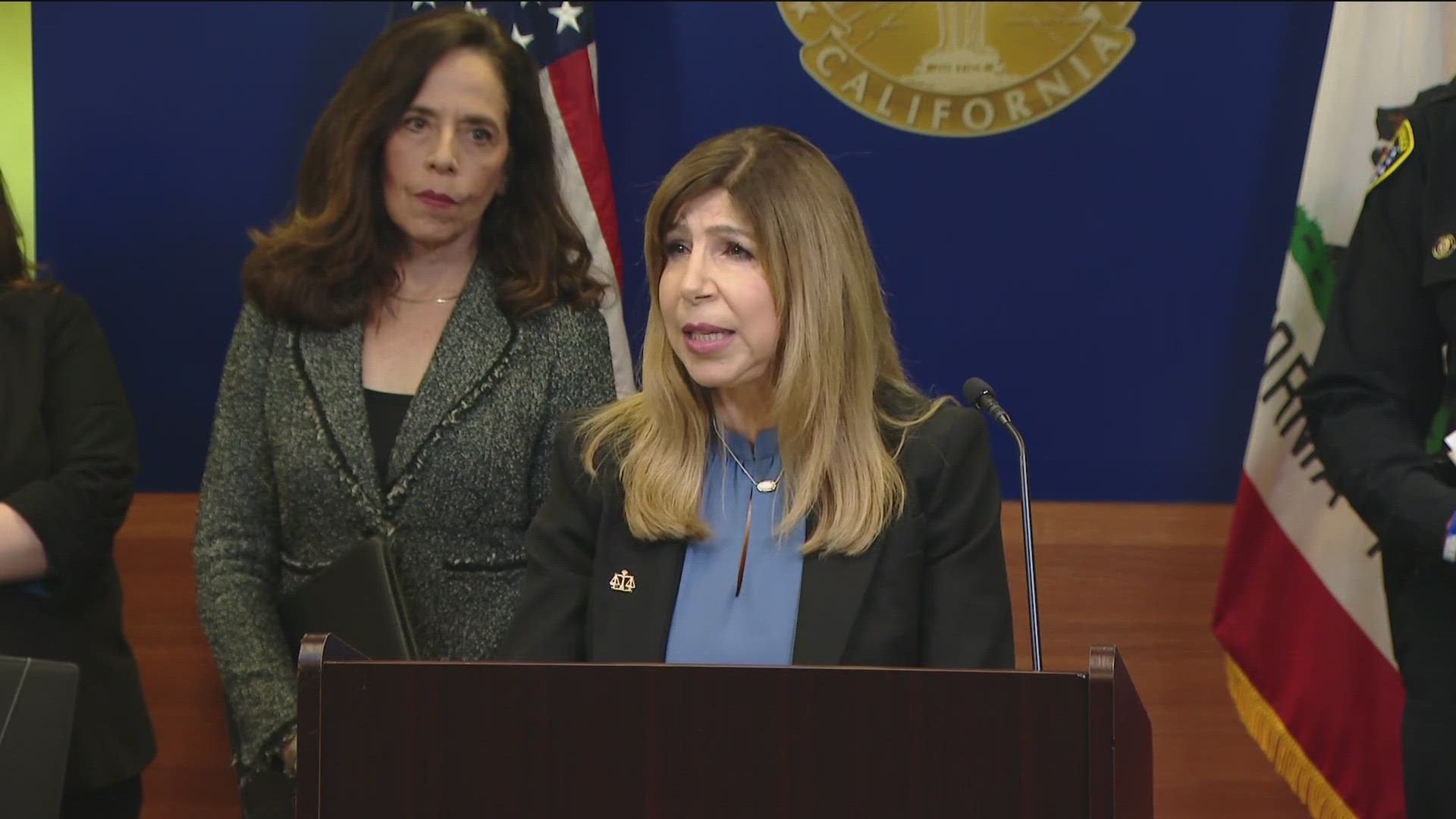SAN DIEGO — San Diego City and District Attorneys are teaming up with police to crack down on chronic crime in our unhoused community.
City Attorney Mara Elliott, District Attorney Summer Stephan, and San Diego Police Department's Acting Assistant Chief Benjamin Kelso announced successful felony prosecutions stemming from a recently formed task force to address the issue of chronic criminal offenders within the unhoused population in the City of San Diego.
The San Diego Accountability Renewal and Community Health Task Force (SD ARCH) was formed late last year to focus on criminal offenses most negatively impacting unhoused individuals and surrounding communities.
The offenses include repeated drug sales, drug use, theft and vandalism.
John Brady works with Lived Experience Advisors. They’re a resource for those experiencing homelessness. Brady says this task force is a step in the right direction.
"As someone who has lived on the street and been the victim of crime on the street, I have called the police twice and no one ever came," Brady said.
He said there's more going on in the community than his organization can help with.
"I wish we could do more. We are aware of some very serious human trafficking on our street. We are aware of organized (drug) distribution on our streets. And we are very aware of seniors and disabled victimization," Brady added.
Stephan said they won't let the problem get worse.
"We are not going to become San Francisco, Portland," she said. "We are not going to be the city or county where there's an open-air drug market."
The task force has already identified four repeat offenders. They include Frederick Johnson, 59, who was arrested for possession of methamphetamine for sale after officers found an ounce of methamphetamine plus an additional 13 vials of the drug in his van. Johnson was later re-arrested after he failed to appear in court and officers found more meth and five cell phones in a tent he was living in at Linda Vista Park.
In a second case, defendants Della Infante, 59, Angel Bernardo Reyes, 55, and Ramon Julio Byars, 44, were all convicted of sale of a controlled substance after undercover officers repeatedly bought methamphetamine from them. In the months before the incidents, there were more than 21 narcotics-related crime cases and over 25 arrests and citations for narcotics-related incidents in the area around Sports Arena Blvd.
"We see the same individuals going through the system but when we're working in silos, we're not getting to the root of the problem,” Elliot advised.
“Officers make contact, the court gives chances, the person is released and in Mr. Johnson's case, he's back out selling methamphetamine poison to our communities,” DA Stephan said emphatically.
Two years of data show the overdose rate for people experiencing homelessness is 118 times higher than the general population. Being a victim of domestic violence, child abuse, and human trafficking are found to be high factors contributing to a person becoming homeless— especially for women and children.
“Our goal is not to simply incarcerate members of that community but, instead, compel them to accept the treatment and services they need and thus, assist them in ending the cycle of crime and homelessness,” Stephan concluded.
WATCH RELATED: Volunteers counted less unhoused people in San Diego Riverbed than last year

